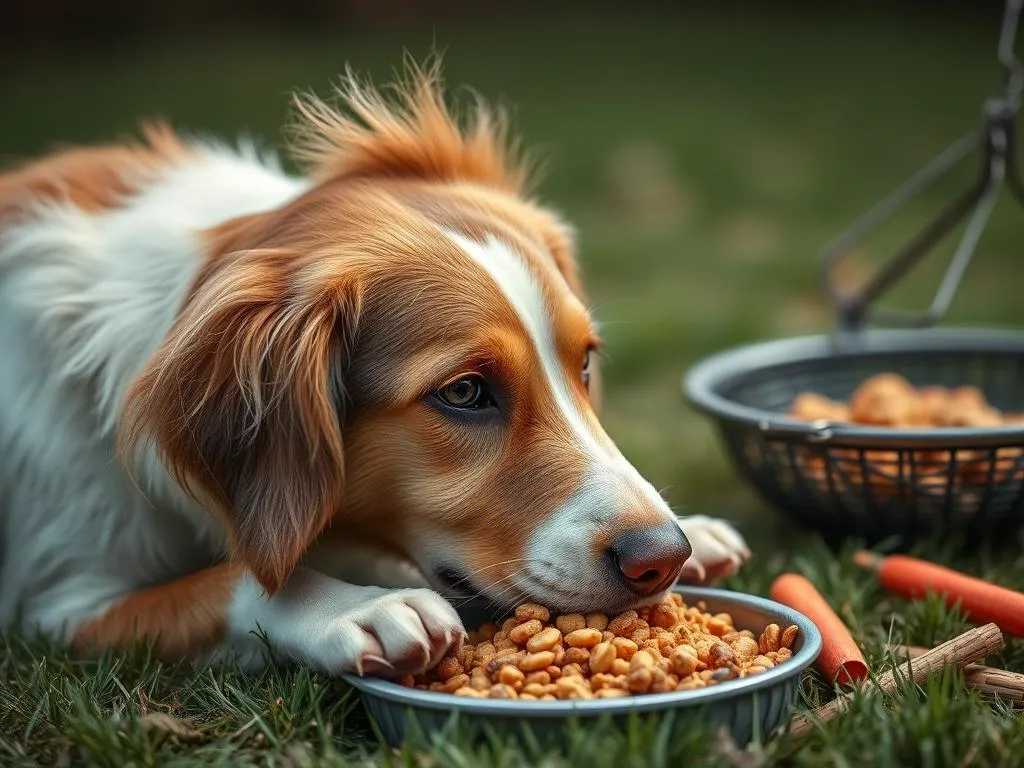
Introduction
Understanding dog health care is essential for any pet owner, especially when it comes to dietary needs during health issues. One significant health concern that many dog owners encounter is diarrhea. Knowing what to feed a dog with diarrhea can aid in a swift recovery and minimize discomfort. Addressing diarrhea promptly is crucial because prolonged diarrhea can lead to dehydration and other serious health complications.
Understanding Dog Diarrhea
What is Diarrhea in Dogs?
Diarrhea in dogs is characterized by loose, watery stools that occur more frequently than normal. It can range from mild to severe, and symptoms may vary depending on the cause. Common signs of diarrhea include:
- Increased frequency of bowel movements
- Urgency to defecate
- Blood or mucus in the stool
- In some cases, vomiting
Diarrhea can be classified as acute or chronic. Acute diarrhea typically appears suddenly and lasts for a short period, often resolving within a few days. Chronic diarrhea, on the other hand, persists for weeks or longer and may require veterinary intervention.
Common Causes of Diarrhea in Dogs
Understanding the underlying causes of diarrhea is key to addressing it effectively. Some common causes include:
- Dietary indiscretion: Dogs are curious eaters and may consume something inappropriate, leading to digestive upset.
- Food allergies or intolerances: Certain ingredients may not sit well with your dog’s digestive system.
- Infections: Bacterial, viral, or parasitic infections can disrupt the gut flora, resulting in diarrhea.
- Stress and environmental changes: Moving to a new home or changes in routine can trigger stress-related digestive issues.
- Underlying health conditions: Issues like pancreatitis can manifest as diarrhea and require professional treatment.
When to Consult a Veterinarian
While some cases of diarrhea can be managed at home, there are situations that necessitate prompt veterinary attention. Contact your veterinarian if your dog exhibits any of the following:
- Diarrhea lasting more than 24 hours
- Severe or bloody diarrhea
- Concurrent vomiting or lethargy
- Signs of dehydration (dry gums, excessive thirst)
- If your dog is a puppy, senior, or has pre-existing health conditions
Dietary Management for Dogs with Diarrhea
Importance of Diet in Recovery
Diet plays a crucial role in the recovery process for dogs experiencing diarrhea. A well-balanced diet can help restore gut health, while proper hydration is vital to prevent dehydration. During episodes of diarrhea, a dog’s digestive system needs gentle, easily digestible foods to ease the burden on the intestines.
Initial Feeding Guidelines
When treating diarrhea, it’s important to start with a cautious approach:
- Withholding food: For the first 12-24 hours, it may be beneficial to withhold food to give your dog’s digestive system a chance to rest. However, make sure they have access to fresh water to stay hydrated.
- Hydration: Encourage your dog to drink water. In severe cases, you may want to consider electrolyte solutions designed for pets to help maintain hydration levels.
Recommended Foods for Dogs with Diarrhea
Bland Diet Options
Once your dog shows signs of stabilization, you can start introducing bland foods. Here are some recommended options:
- Boiled chicken and rice: Skinless, boneless chicken cooked without seasoning combined with plain, white rice is a classic choice due to its digestibility.
- Plain pumpkin or sweet potatoes: Both are high in fiber, which can help firm up your dog’s stool. Ensure you use plain canned pumpkin, not the spiced pie filling.
- Cooked oatmeal: Oatmeal is a gentle, high-fiber option that can soothe the digestive tract.
- Low-fat cottage cheese: This can be a good source of protein and is easier to digest than some other dairy products.
Specially Formulated Diets
For dogs with persistent digestive issues, specially formulated commercial diets may be a suitable option. These diets are often designed to be highly digestible and can help restore gut health. Consider the following:
- Commercial bland diets: Many veterinary clinics offer prescription diets tailored for digestive health. These can be beneficial but may come at a higher cost.
- Pros and cons: While commercial products can be convenient, they may contain additives or preservatives that some pet owners prefer to avoid. Always read labels carefully.
Foods to Avoid
Not all foods are suitable for dogs experiencing diarrhea. Avoid the following to help prevent further digestive upset:
- High-fat foods: Foods that are high in fat can exacerbate diarrhea and should be avoided.
- Dairy products: Many dogs are lactose intolerant, and dairy can worsen diarrhea.
- Spicy or seasoned foods: Spices can irritate the digestive tract and should be excluded from your dog’s diet.
- Human food scraps: Avoid feeding your dog table scraps, as they can contain ingredients that may not be safe for canine consumption.
Transitioning Back to Regular Diet
Steps for Reintroducing Regular Food
Once your dog’s diarrhea has resolved, you can gradually reintroduce their regular diet. Follow these steps:
- Gradual reintroduction: Start by mixing a small amount of their regular food with the bland diet. Increase the proportion of regular food over several days.
- Monitoring for recurrence: Keep an eye on your dog’s stool consistency and overall behavior. If diarrhea recurs, revert to the bland diet and consult your veterinarian.
Signs of Recovery
You’ll know your dog is on the mend when you observe:
- Improvement in stool consistency: Stools should start to firm up and return to a normal color.
- Increased energy levels and appetite: A return to normal eating and playing habits is a positive sign of recovery.
Preventative Measures
Regular Nutrition Management
Maintaining a balanced diet is essential for your dog’s long-term health and can help prevent future digestive issues. Be mindful of the following:
- Balanced diet: Ensure your dog’s diet is rich in nutrients and appropriate for their age, size, and activity level.
- Identifying allergens: Keep track of foods that may trigger allergic reactions or digestive upset, and avoid them in the future.
Routine Vet Check-Ups
Regular vet visits play a vital role in your dog’s health care. They can help catch potential issues early and ensure your dog’s vaccinations and preventive care are up to date.
Stress Management
Stress can contribute to digestive issues in dogs, so it’s important to identify and mitigate stress triggers. Techniques to help reduce anxiety include:
- Regular exercise: Physical activity can help relieve stress and improve overall well-being.
- Creating safe spaces: Ensure your dog has a quiet, comfortable place to retreat when they feel anxious.
Conclusion
Proper nutrition is crucial during the recovery process from diarrhea. Understanding what to feed a dog with diarrhea can help facilitate healing and restore health. Always consult with a veterinarian for tailored advice and recommendations specific to your dog’s needs. Prioritizing good health care practices, including nutrition management and routine veterinary visits, will lead to a happier, healthier life for your furry friend.









